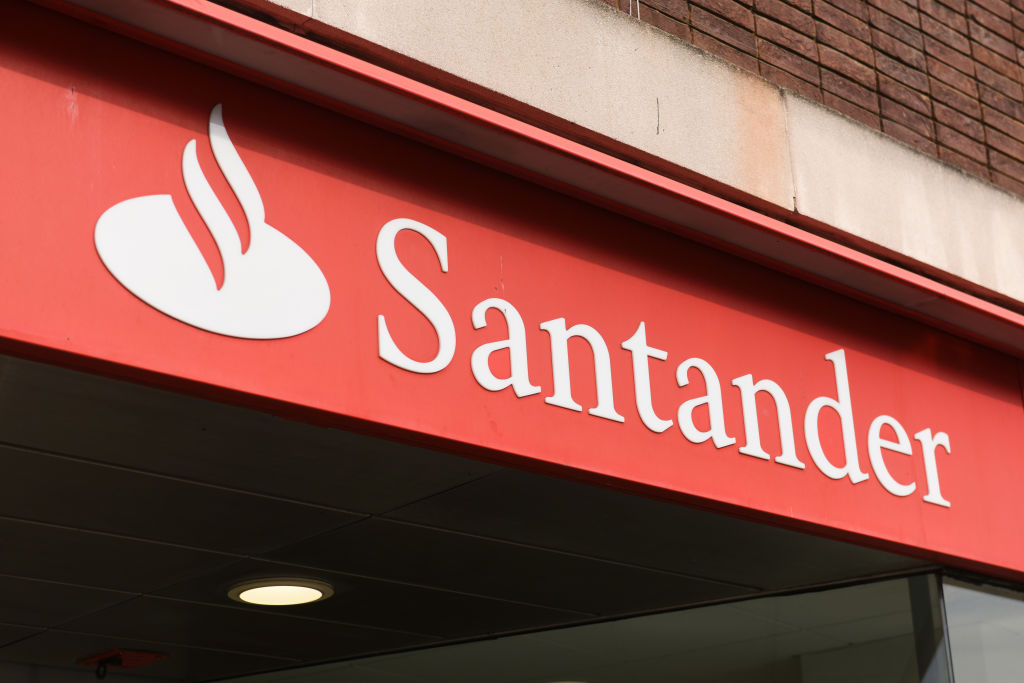How safe is your Sipp?
How big of a risk does the collapse of an investment firm pose to your pension? Natalie Stanton investigates.
Get the latest financial news, insights and expert analysis from our award-winning MoneyWeek team, to help you understand what really matters when it comes to your finances.
You are now subscribed
Your newsletter sign-up was successful
Want to add more newsletters?

Twice daily
MoneyWeek
Get the latest financial news, insights and expert analysis from our award-winning MoneyWeek team, to help you understand what really matters when it comes to your finances.

Four times a week
Look After My Bills
Sign up to our free money-saving newsletter, filled with the latest news and expert advice to help you find the best tips and deals for managing your bills. Start saving today!
All of us want to be certain that our retirement savings are safe. Unfortunately, sometimes investment firms collapse as happened last month, when European Pensions Management Limited (EPML), a relatively small but well-regarded provider of self-invested personal pensions (Sipps) went into administration (see below). So how big a risk could something like this pose to your pension?
Pension provider failures are rare and they should hopefully become rarer: the Financial Conduct Authority, the UK's financial services regulator, is tightening the rules for Sipp providers, requiring them to hold more capital to provide an extra layer of security for savers.
However, even before these new rules come into effect in September this year, "people with their money in a Sipp should be protected", says Mike Morrison of AJ Bell, one of the largest Sipp administrators. That's because the Sipp provider must keep clients' assets separate from its own money, which means that they can't be taken by creditors if the firm becomes insolvent.
MoneyWeek
Subscribe to MoneyWeek today and get your first six magazine issues absolutely FREE

Sign up to Money Morning
Don't miss the latest investment and personal finances news, market analysis, plus money-saving tips with our free twice-daily newsletter
Don't miss the latest investment and personal finances news, market analysis, plus money-saving tips with our free twice-daily newsletter
The only situation in which you are likely to suffer losses is if the Sipp provider has broken the rules and held client money in its own accounts. If this happens, clients should have some protection under the Financial Services Compensation Scheme (FSCS), the statutory scheme that compensates customers of authorised financial services firms if they fail and are unable to pay claims against them. The level of this protection varies depending on what kind of pension you have.
Compensation for losses in trust-based Sipps such as those offered by providers such as AJ Bell and Hargreaves Lansdown is capped at a maximum of £50,000, like most investment products. Pensions run by insurance firms have no cap on potential compensation if you are invested in funds run by the insurer (since they count as insurance contacts for FSCS) but they typically offer less flexibility.
Even though Sipp provider failures are rare, if you have a trust-based Sipp that's well over the FSCS limit, it's safest to stick to large, solid providers. If you want to use smaller firms, consider splitting it into smaller pots held with different providers to ensure it's fully protected by the FSCS in a worst-case scenario.
What next for EPML?
If you're one of the 6,000 savers who hold a Sipp, individual savings account (Isa) or other account with European Pensions Management Limited (EPML), you're likely to be concerned about the safety of your money. Fortunately, while details of what caused the firm to go into administration are not clear, it doesn't currently appear that there was anything untoward.
The FCA has published a note stating that "the majority of client money is in place as required". This is expected to be confirmed shortly by the special administrators, Smith & Williamson. In the event that some money or assets are missing, clients will be covered by the FSCS, as outlined on this page.
So what's likely to happen now? The administrators will look for a buyer to take on EPML's clients, which is unlikely to be difficult. "Lots of other companies are looking to buy books of business," says AJ Bell's Mike Morrison. The administrators say that they have already had a number of enquiries from prospective acquirers and if a deal can be agreed with one of them, it's likely that all client assets will be transferred as part of this deal. When providers fail "it generally ends up with a safe transition from one provider to another", says Morrison.
If you have funds invested with EPML and would like to transfer them to another provider, this should be possible (subject to your contractual agreements). However, bear in mind that the administrators will be busy and the transfer may take longer than usual. Unless you need access to the funds sooner rather than later, you may be better waiting for the administrators to secure a buyer. For further details, see the administrator's website.
Get the latest financial news, insights and expert analysis from our award-winning MoneyWeek team, to help you understand what really matters when it comes to your finances.
Natalie joined MoneyWeek in March 2015. Prior to that she worked as a reporter for The Lawyer, and a researcher/writer for legal careers publication the Chambers Student Guide.
She has an undergraduate degree in Politics with Media from the University of East Anglia, and a Master’s degree in International Conflict Studies from King’s College, London.
-
 Should you buy an active ETF?
Should you buy an active ETF?ETFs are often mischaracterised as passive products, but they can be a convenient way to add active management to your portfolio
-
 Power up your pension before 5 April – easy ways to save before the tax year end
Power up your pension before 5 April – easy ways to save before the tax year endWith the end of the tax year looming, pension savers currently have a window to review and maximise what’s going into their retirement funds – we look at how
-
 Why pension transfers are so tricky
Why pension transfers are so trickyInvestors could lose out when they do a pension transfer, as the process is fraught with risk and requires advice, says David Prosser
-
 Best and worst UK banks revealed
Best and worst UK banks revealedWe reveal the best UK banks – and the worst – when it comes to managing your money and good customer service. How does your provider compare?
-
 The best cash ISAs – February 2026
The best cash ISAs – February 2026Savings The best cash ISAs can help you make the most of your tax-free savings. But you may want to take advantage of top rates before they disappear
-
 Santander launches best easy access savings rate in 14 years
Santander launches best easy access savings rate in 14 yearsSantander launches market leading easy access savings rate, but you’ll have to act fast if you want to take advantage - we have all the details
-
 Bank of Baroda closes doors to UK retail banking
Bank of Baroda closes doors to UK retail bankingAfter almost 70 years of operating in the UK, one of India’s largest bank is shutting up shop in the UK retail banking market. We explain everything you need to know if you have savings or a current account with Bank of Baroda
-
 The rise and fall of finfluencers as FCA clamps down on poor advice
The rise and fall of finfluencers as FCA clamps down on poor adviceFCA clamps down on ‘finfluencers’ - but will it protect consumers from ‘bad advice’? Kalpana Fitzpatrick looks at the rise and fall of finfluencers
-
 Lloyds, Santander and HSBC hike savings rates
Lloyds, Santander and HSBC hike savings ratesBanks and building societies have been raising their savings rates as the base rate continues to rise. Our round-up of all the savings rates hikes.
-
 What is Islamic finance?
What is Islamic finance?Sharia-compliant or Islamic finance banks regularly offer great rates for savers, but how do they differ from Western banks?